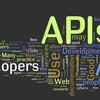Through training on publicly available source code libraries, large language models (LLMs) can invoke multiple encapsulated APIs to solve complex programming problems. However, existing models inherently cannot generalize to use APIs that are unseen in their training corpora. As libraries continuously evolve, it becomes impractical to exhaustively retrain LLMs with new API knowledge. This limitation hampers LLMs from solving problems which require newly introduced or privately maintained libraries. Human programmers often explore unfamiliar APIs by writing experimental code before invoking them for a more complex problem. Inspired by this behavior, we propose , a training-free framework that empowers LLMs to invoke multiple unseen APIs in code solution by (1) planning a complex problem into several API invocation subtasks, and (2) exploring correct API usage through a novel chain-of-API-exploration. Concretely, ExploraCoder guides the LLM to iteratively generate several experimental API invocations for each simple subtask, where the promising execution experience are exploited by subsequent subtasks. This forms a chained exploration trace that ultimately guides LLM in generating the final solution. We evaluate ExploraCoder on Torchdata-Github benchmark as well as a newly constructed benchmark that involves more complex API interactions. Experimental results demonstrate that ExploraCoder significantly improves performance for models lacking prior API knowledge, achieving an absolute increase of 11.24% over niave RAG approaches and 14.07% over pretraining methods in pass@10. Moreover, the integration of a self-debug mechanism further boosts ExploraCoder's performance on more challenging tasks. Comprehensive ablation and case studies provide further insights into the effectiveness of ExploraCoder.
翻译:暂无翻译




